Top 10 Richest Business Families in China with Net Worth
Overview: Chinese Wealthy Families
The number of wealthy families in China has increased, as has the sum of their individual fortunes. As of January 2022, there were about 5.2 million Chinese families with wealth totaling 6 million yuan (US$ 900,000), an increase of 2.1% from the previous year. According to a report by the Hurun Research Institute, their combined wealth increased 2.5% annually to 164 trillion yuan.
The report's use of data from 2021, which includes information about mainland China, Hong Kong, and Taiwan, is noteworthy. The Greater China region's stock and real estate markets all experienced a decline in 2022.
There are now 138,000 households in China that are ultra-high net worth families, or those with a total wealth of 100 million yuan, up 3.5% or 4,600 households.
According to Hurun, which is frequently compared to Forbes in China, total wealth includes investable assets like equities, funds, and cash, investable properties, as well as a family's primary residence and privately held businesses.
Only looking at investable assets, there were 82,000 Chinese households with more than 100 million yuan.
According to Rupert Hoogewerf, chairman and chief researcher of Hurun Report, the real estate market, particularly in first-tier cities, is the primary cause of the increase in wealth. The number of wealthy households has increased as a result of the domestic stock market, on the other hand.
However, 2021 was a difficult year for a lot of prosperous families in China, primarily due to the resurgence of the Covid-19 pandemic. The increase in wealth was an indication of "strong resilience in their demand for asset preservation and appreciation," according to the report, which was produced in cooperation with Yicai, a wealth management company with its headquarters in Qingdao.
Wealthy households are concentrated in big, coastal cities, with 68% of the total in the top 30 biggest cities.
Shanghai came in second with 17,500 extremely wealthy families, trailing Beijing's 20,400 families with incomes of at least 100 million yuan. With 5,990 and 4,690 ultra-rich families, Shenzhen and Guangzhou came in third and fourth, respectively.
Learn more: The Full List of Chinese Billionaires In 2023 - Who Are The Richest People In China?
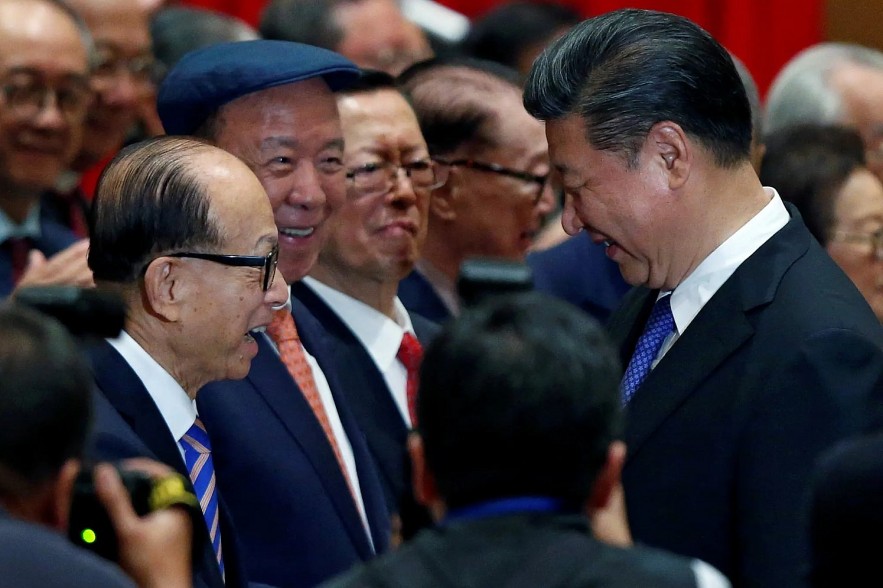 |
| 10 Richest Families in China Today |
| Table of Contents |
Top 10 Wealthiest Families in China (Updated)
10. Mao Lixiang Family
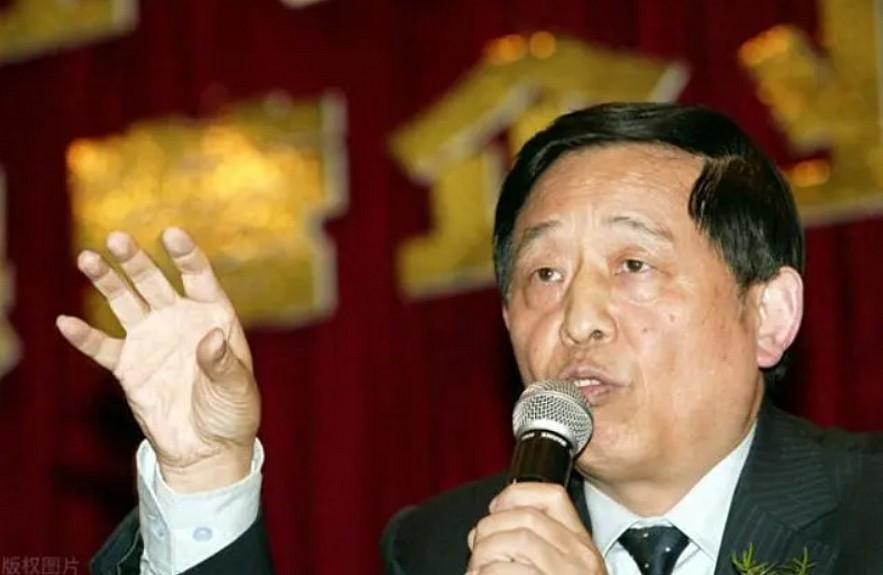 |
| Mao Lixiang started his business in the field of component processing |
"King of fire" is how people refer to Mao Lixiang. He is the creator of Fotile, one of China's top manufacturers of kitchen appliances.
Mao Lixiang's career path was not straightforward. He developed severe arthritis when he was only 18 years old, became bedridden for days on end, and lost the ability to walk.
Mao Lixiang's life was at its lowest point at the time. But Mao Lixiang studied acupuncture and conventional medical practices with an iron will and a spirit of not quitting. He finally recovered and was able to walk normally after a protracted battle with the illness.
Mao Lixiang initially launched his company in the component processing industry. However, things did not go well at work, and when he was 45 years old, he had to shut down the factory.
Mao Lixiang founded the renowned Feixiang Group, which at the time controlled 50% of the kitchen market, in the early 1990s after spending some time in hiding while seeking out opportunities and gaining experience.
Mao Lixiang established a class at the age of 66 that specialized in teaching business owners how to make a big splash in the field. At the age of 82, Mao Lixiang is retired and content with his family.
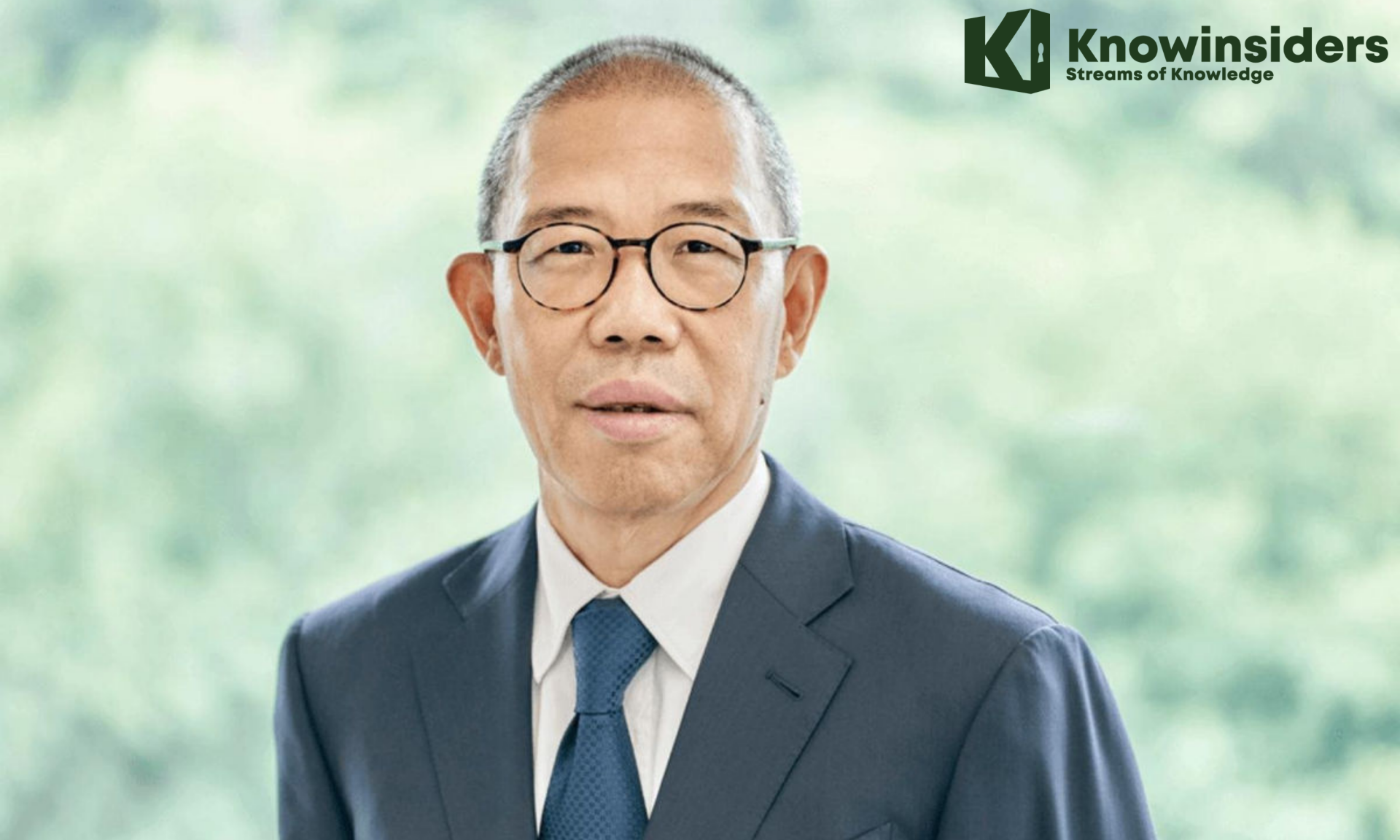 Who Is Zhong Shanshan: The Richest Billionaire In China? Who Is Zhong Shanshan: The Richest Billionaire In China? |
9. Liang Qingde Family
Through unbeatable strategies, Liang Qingde has transformed from a small factory into the "microwave king," demonstrating to everyone that he possesses superior talent and the correct business vision.
By offering ongoing discounts and spreading the word about the importance and advantages of his products to consumers, Liang Qingde has established himself as a business legend.
Currently, the Galanz Group of the Liang Qingde family is a well-known name in the electronics and home appliance industries worldwide.
8. Nan Cunhui Family
A well-known billionaire who made three appearances on the Forbes China Rich List is Nan Cunhui (born 1963). He and his family are renowned for having enormous wealth and for having a legendary backstory to their illustrious success.
In the past, Nan Cunhui worked as a shoe shiner. He and his friends established the Qiijing Switch Factory after many years of work, beginning their ascent to legend. To keep up with the times, Nan Cunhui consistently makes an effort and studies. He makes bold choices and doesn't waver from them.
Nan Cunhui succeeded after putting a lot of effort into becoming one of the wealthy billionaires in the vast nation. In addition, he was successful in elevating his family to the status of one of the richest and most influential families.
Nan Cunhui shared the following about the success philosophies: "Only when you make efforts and work hard will you succeed and win absolutely."
7. Chang Yung-fa Family
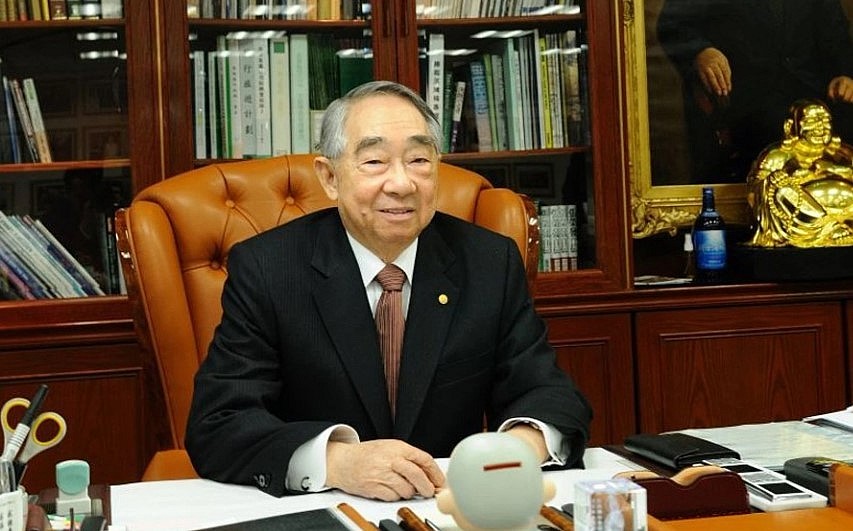 |
| Chang Yung-fa |
The "Emperor of the Sea" is Chang Yung-fa. He is the owner of Taoyuan, Taiwan-based Evergreen Marine Corporation, a container shipping and transportation business.
One could say that Evergreen Marine's green container trucks can be seen traveling everywhere, from the sea to the sky.
When Chang Yung-fa was a child, his father unexpectedly passed away, leaving his mother to raise her 7 children by herself. He worked at a shipping company after graduating.
Chang Yung-fa, who is smarter than most people, wants to work hard, study to build relationships, wait for a chance to start a business, and change his life.
He also worked hard on his own to obtain a captain's degree and later succeed as a successful businessman. Chang Yung-fa started a company, worked with others, and created a small shipping group. then gradually grew into a sizable business.
He rose to prominence in the shipping sector in 1984 and amassed a sizable fortune that was the stuff of dreams for everyone.
Check more: Top 15 Richest Business Families in India and Net Worth (Update)
6. Cai Wanlin Family
This is a well-known Chinese business family from Taiwan. Mr. Cai Wanlin, the family's patriarch, had previously worked as a common vegetable vendor.
But he was more determined than most, and he worked hard while continuously learning in the hope that his future would bring about a change in his life. Cai Wanlin boldly founded a credit union and introduced the "Happy Deposit" account opening service for 1 yuan in 1957. However, when it first began, those in the financial industry mocked it and did not find it to be beneficial.
However, Cai Wanlin has demonstrated that her inventiveness is valid given the large number of domestic workers who are willing to contribute spare change they spend on essentials to the fund. Even college students are beginning to open accounts and start saving money. His credit fund is becoming more and more well-liked. Following that, Cai Wanlin made the decision to found Cathay Pacific Group and work in a variety of industries.
Cai Wanlin then formally joined the ranks of well-known billionaires with significant wealth, assisting his family in also becoming "notorious" in the business world.
5. Liu Family
With four brothers who are all well-known billionaires, Liu Yongxing, Liu Yongyan, Liu Yongmei, and Liu Yonghao, this family is well-known for its enormous wealth.
The Liu family first entered the animal feed industry in 1982. A few years later, the Liu family's agricultural enterprise was expanded, and the chemical and non-ferrous metal industries were developed under the umbrella of the Oriental Hope Group.
Following that, Liu Yongxing was formally elected group chairman and assumed the role of the Liu family's representative in decision-making.
Additionally, Liu Yonghao is well known for his work in the agricultural industry. He is the company's founder and chairman, and New Hope is the biggest producer of animal feed in China. Additionally, he takes part in banking industry investing.
The Liu family is renowned for its wealth as a result of the cooperation of family members. Each person is given a task, and they clearly divide the work in order to foster family growth.
4. Wang Yongqing Family
Wang Yongqing, a well-known businessman in Taiwan (China), is known as the "god of management" and has built up a sizable business empire.
Formosa Group, a multi-industry corporation that engages in biotechnology, petrochemicals, processing, and the production of electronic components, was founded by Wang Yongqing. But Wang Yongqing passed away in 2008, when he was 91 years old.
He was the second billionaire in Taiwan and 178th in the world at the time of his passing. Forbes magazine estimated the value of his enormous fortune at up to 5.5 billion USD.
With his inspiring tale of starting from nothing in business, Wang Yongqing also created a "storm". He came from a low-income family and had to look for work elsewhere.
The Japanese colonial empire engaged in repression toward the end of World War II, making it impossible for Wang Yongqing's family's rice business to survive. He changed to making bricks. The company had to close its doors right away, though.
He founded Formosa Plastics after numerous failures and a change of direction into the plastic industry. With his strategic insight and prior experience, Wang Yongqing has accelerated the company's growth to more than 70,000 employees, solidifying its position in the manufacturing sector. He eventually rose to become one of the wealthiest and most influential billionaires.
Despite having only completed elementary school, Wang Yongqing has built a magnificent empire that is highly regarded. Despite having a large fortune, he earned the moniker "stingy billionaire" during his lifetime because he consistently used the same towel.
Wang Yongqing has a strategy for teaching and molding his kids to be self-reliant and diligent. His family is still prosperous and expanding as a result of this.
3. Pao Yugang Family
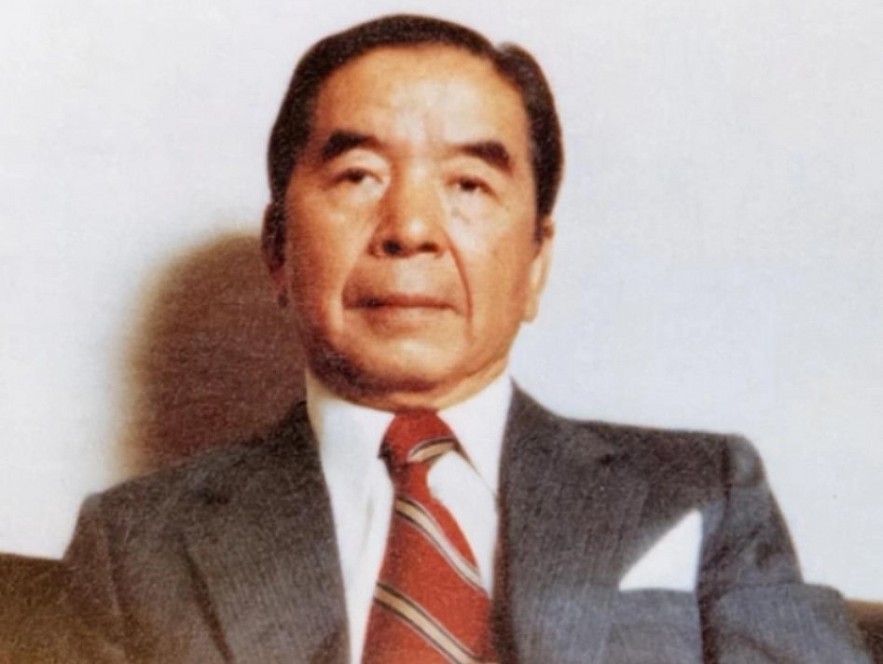 |
| Pao Yugang |
BW Group Limited, a maritime business engaged in deep-water oil and gas production, floating gas infrastructure, and marine transportation, was founded by Pao Yugang.
He had a reputation as the "world transport king" before his death in 1991. At the young age of 13, Pao Yugang began working for an insurance company.
Pao Yugang established his own insurance company when he was just 19 years old.
He made a big splash and rose to fame in the banking industry with a number of outstanding accomplishments. Pao Yugang was then named the Shanghai Bank's Deputy Director.
Later, he learned about the maritime transport sector and rose to prominence as a businessman by surviving the harsh oil crisis. Pao Yugang also overcame many obstacles to become a well-known billionaire in China.
2. Li Ka-shing Family
 |
| Li Ka-shing - Richest Families in China Today |
Hong Kong (China) is home to business tycoon Li Ka-shing. According to Forbes in 2023, he has a sizable fortune that is almost 38 billion USD in value.
Before retiring, Li Ka-shing successfully created and expanded his own business empire, CK Hutchison Holdings Group, which operates in industries like energy, telecommunications, retail, and seaports.
In addition, he oversees more than 300,000 employees and engages in business operations in more than 50 different nations. Li Ka-shing's accomplishments serve as evidence of hard work, tenacity, and constant development.
Check more: Top 10+ Richest Business Families in Japan and Net Worth (Updated)
1. Rong Family
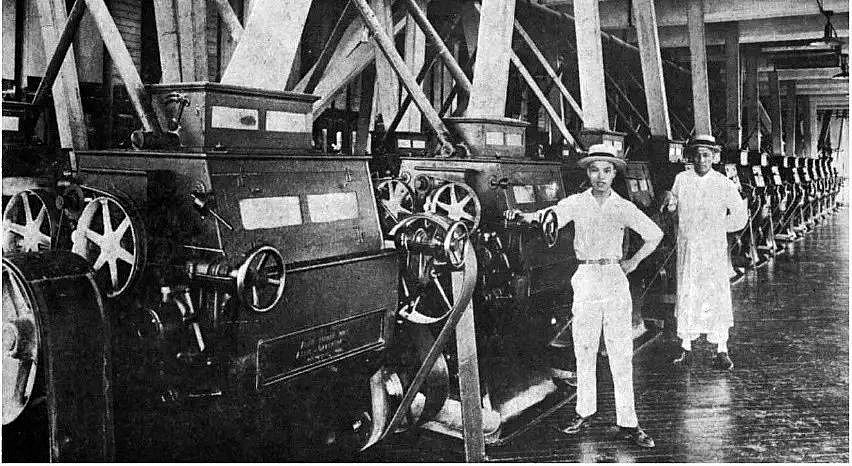 |
| Inside one of the flour mills belonging to the Rong family |
Three generations of this family have all achieved famed billionaire status, making them one of China's richest and most enigmatic families. Additionally, this is a family that has a rich history and has made numerous significant contributions to the growth of a nation with billions of citizens.
Such a "unknown" family is listed among China's wealthiest families. His wealth, status, and seniority are incomparable to those of Li Ka-shing, Jack Ma, and other families, despite the fact that he is less well known than Li Ka-shing.
The Rong family is known as the "invisible richest family" and is regarded as the largest financial family in the world.
The Rong family has a long history that dates back to the Qing Dynasty and has been successful up to this point. This family's ancestor was Rong Qi, a Confucius disciple.
Similar to the banking and finance sectors of today, the Rong family first engaged in business in the financial sector. Additionally, they had a monopoly on the flour and textile industries back then.
Statistics indicate that the Rong family's assets have already surpassed US$300 billion. The CITIC Group, now recognized as one of China's four major conglomerates, was only the Rong family's subsidiary at the time.
Furthermore, despite the Rong family's two free donations of wealth to the nation as a wealthy and well-respected family, the three generations of the Rong family are still the richest in the country.
This causes us to ponder how the Rong family managed to maintain their wealth for three generations.
Flour King Rong Desheng
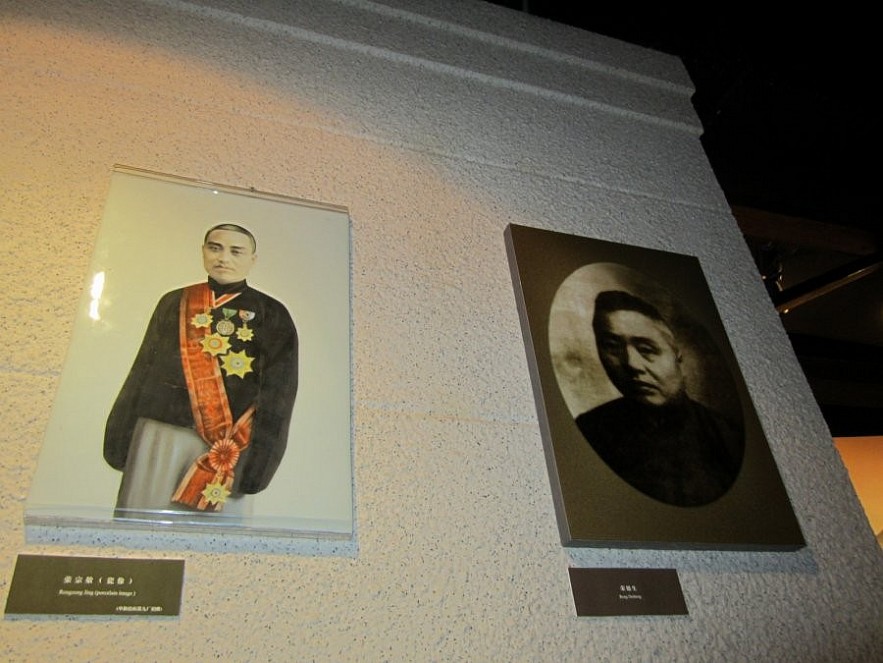 |
| Rong Zongjing and Rong Desheng |
The two brothers Rong Zongjing and Rong Desheng are the foundation for the Rong family's current success.
The Rong brothers hail from Jiangsu's Wuxi. They are said to have had high-ranking ancestors, but that was only in days gone by. The family is said to be in the middle by the time of the Rong brothers' generation. The two brothers had already dropped out of school at a young age when they were sent to Shanghai's bank as apprentices.
The two brothers experienced unprecedented novelty and excitement in the thriving Shanghai, which accelerated their introduction to the contemporary business economy.
Rong Zongjing, who had numerous apprenticeships, visited the bank by himself in 1891 to perform "running the street". Rong Zongjing has his own network of contacts, which is even more helpful for the Rong family's future development, after working for three years and learning certain rules for how Shanghai's financial market operates and is allocated. support.
Rong Desheng, unlike his eldest brother, left Shanghai and traveled to Guangdong, where his father worked, to assist in tax collection and payment for his father's business. In the course of this process, Rong Desheng also learned that the two most successful businesses at the time were those that dealt with food and clothing.
Rong Desheng also enjoys reading books that describe Western industries in his spare time. He finds great inspiration in one of them, "Biography of the Top 10 Richest People in America", which helps him realize that there are a growing number of people in the world. The establishment of an industry is Qianzhuang's more important cause. He believed that, given the time's circumstances, starting a business could not only bring in a fortune but also save the nation.
Rong Desheng was soon even more convinced of this after seeing it with his own eyes a short while later.
When Rong Desheng was traveling through Hong Kong in 1900, he noticed a sizable area of white on the pier. Rong Desheng was shocked to see that it was entirely made of flour when he entered. Although wheat has been a staple crop in China's agriculture since antiquity, it now needs to be imported from other countries in order for people to eat it. Inwardly heaving, Rong Desheng sighed. He secretly promised that one day he will be able to use his own hands to change this status quo at the same time.
And soon after, Rong Desheng was forced to only remain in Shanghai due to the constant upheaval. All industries in Shanghai were in despair following the Boxer Rebellion and the invasion of China by the Eight-Power Allied Forces, but Rong Desheng was very happy because as other industries were about to shut down, the need for food among the populace grew more and more urgent. Only the flour sector enjoys great prosperity.
This was discovered by both Rong Desheng and the oldest brother Rong Zongjing, who was also shopping in Tianjin. The two brothers got along well and decided to start a flour mill. Larger and superior flour mill. In this way, the two brothers used their accumulated savings to start the "Baoxing Flour Mill" in Wuxi in 1901, which also marked the beginning of the Rong family's ascent.
The Baoxing Flour Mill, which was only recently established, quickly brought about an opportunity for growth. When the Russo-Japanese War broke out, a large number of Russian flour mills in the northeast shut down, which resulted in a rise in the price of local flour. When the Rong brothers realized this, they made the decision to increase production quickly and invest all of their earnings in the purchase of machinery for a new factory. The Rong Brothers have opened 12 flour mills in just three years, which accounts for a quarter of the nation's flour production.
If the Russo-Japanese War was what set the Rong brothers out on the road, then the First World War marked the beginning of the Rong family's heyday. A sharp decline in food production was caused by the fact that at the time, European nations were preoccupied with their own wars and had no time for the affairs of East Asian nations. Everyone has consequently bought flour from China. Rong's Flour Mill, a major supplier of flour in China, is even more reticent to accept orders, even when they involve hundreds of thousands of packets of flour. Rong's flour makes enormous profits and sells well abroad as a result.
Rong Desheng has thus far accomplished the year's objective in the "eating" sector, and the success of the flour sector has encouraged the Rong brothers to enter the "wear" sector, or the textile sector.
The cash flow from the flour mill enabled Rong Desheng to quickly expand his textile business. After the "September 18th Incident," when the three eastern provinces were overthrown and Chinese nationalism reached an all-time high, Rong's Spinning Factory gained prominence in the sector. Rong Zongjing capitalized on this momentum and proposed: "The people of the entire country are unanimously boycotting Japanese products. If we can keep going until the very end, the economy will have a chance to recover, and the nation will be able to go from weakness to strength.
Under such patriotism, the Rong family's industrial enterprise entered a golden age of development, especially the spinning mill, which was immediately expanded to 9 factories and employed 10,000 people.
The three eastern provinces fell after the "September 18" Incident, and national patriotism was at an all-time high. "The people of the entire country will boycott Japanese goods," suggested Rong Zongjing. The industry will likely experience a revival if we can see this through, and the nation as a whole may transition from weakness to strength. There are now nine spinning mills owned by the Rong family, employing tens of thousands of people.
Due to his family's wealth, Rong Desheng quickly acquired the titles of "King of Cotton Yarn" and "King of Flour" and rose to the top of society at the time.
Rong Desheng has not only established himself as a well-known "flour king" in business, but he is also passionate about domestic education and various public welfare initiatives. He not only established a number of schools during that time, but he also frequently led the charge in securing funding for the building of railroads and bridges. Before passing away, he even left a will in which he bequeathed all the antiquarian books he had amassed throughout his life to the nation, free of charge.
Unfortunately, Mr. Rong Desheng died in 1952 as a result of ineffective medical care, putting an end to the legend of a generation. Of course, the family's performance does not end with the passing of the elderly gentleman. On the contrary, his son Rong Yiren took control of the Rong family and elevated it.
 Top 10 Richest People & Families in Canada Today Top 10 Richest People & Families in Canada Today Find out the top 10 richest people and richest families in Canada today! |
 Top 10 Richest Families in the World Today Top 10 Richest Families in the World Today With the Walmart retail empire and assets of up to 224.5 billion USD, the Walton family has always maintained the number 1 position in the ... |



























